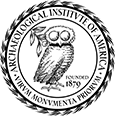New Worlds: Histories of Crisis and Encounter
History Graduate Student Association Conference, Brown University
Keynote Speaker: Tatiana Linkhoeva, New York University
April 3-4, 2020
Visions of new worlds and the stakes of abandoning the old are topics that have been taken up from many positionalities within a number of geographic and temporal subfields. New world history has traditionally referred to colonial encounters, especially on the American continents. Yet the questions that scholars in these fields have been asking can also be used to illuminate new and provocative approaches to histories of apocalyptic dreaming, environmental studies, and questions of new and changing lifestyles. These scholars continue to broaden existing theoretical models to probe the relationships between centers and margins, question received hierarchies, examine encounters between people, the exchange of ideas and resources, and reveal the ways in which different worlds collide. The concept of a new world calls attention to networks of knowledge production and circulation, as well as the visual and material representations of paradigm shifts and ruptures. It is not only valuable for considering dramatic revolutions, but allows us to interrogate our perspectives on continuities and the meaning of change. Running through all of these “new worlds” are issues of power, control, economy, environment, identity, and technology.
This conference intends to provoke discussion among academics from all geographical and temporal fields concerning how we envision new worlds, how they are created in politics and space, how
conceptions of newness change over time, and how these questions are approached by various methodologies. This could involve exploring ancient and medieval visions of the future, challenging the Eurocentric point of view in writing histories of encounter, examining the interactions between non-human and human worlds. It also reveals the extent to which the understanding of rupture and revolution has shifted and how the use of scientific knowledge and technology has reconfigured the modern world.
Possible paper topics and themes include, but are not limited to:
● Visions of the future and modernity
● Revolutions and ruptures
● Conceptualizing and representing the ‘foreign’
● Changing environments and questioning the Anthropocene
● Colonial expansions and indigenous responses
● New ways of knowing
● Disrupting binaries and re-inventing the gendered ‘self’
● Innovative approaches to the archive and writing new histories
● Encounters and contact zones
● ‘Building’ new worlds in art and architecture
● The politics of lifestyles
● Urban histories and metropolitan futures
● The end of history/the end of the world
We welcome both individual papers and full panel proposals. We also welcome volunteers for chairing panels. Papers should be 15-20 minutes in length, and may be from any geographic or temporal specialization. Please apply here by midnight on February 2nd, 2020.
Note: The costs of attending the conference, including travel, accommodation, and other expenses, will be the responsibility of the presenter(s) or their institutions.
Please contact brownhgsaconference2020@gmail.com for further questions.












